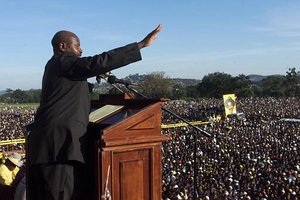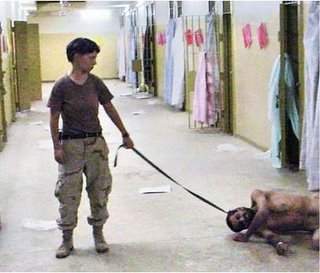Let us throw out the old ideologies!
It seems most of European politics is struggling with party identification in relation to the old ideologies. Everyone, except a few old revolutionaries, seems to accept liberal market economy with a social twist of welfare, and an emphasis on tradition values. In other words all parties are centrist and mix between socialist, capitalist, liberal and conservative values. How on earth are we to distinguish one from the other? The only way seems to be which set of ancient rhetoric is used to describe the party: Moral values, solidarity, freedom, individual liberties, equality etc. All beautiful words, but hardly useful to distinguish and describe politics of today.
My view is that the ideologies were written by brilliant men, who were still little more than children of their time. Therefore, Locke, Burke, Marx, Hobbes, Engels, Bakunin and the lot would have written completely different stuff had they lived today. It is equally sure that it is our own inability to think outside the box that keeps us locked in a political debate that uses outdated concepts and ideologies.
Francis Fukuyama wrote that we have come to an end of history in the fact that liberalism has won. He was absolutely right! The struggle between the old ideologies are over and the disillusioned youths rioting across the globe is proof that new belief systems are necessary for political identification in the 21st Century. We have come to the end of the history of 18th and 19th century ideology, and its really about time!
It is obviously much harder to create new ideologies than complaining about the old. Where should we start? Perhaps we do not need new ideologies at all. Belief systems that create images of black and white, right and wrong are perhaps not the way forward for the post-modern generations. Economics is probably not the most important issue of the next set of political value systems. After all, what is necessary is only the fine tuning of the welfare systems of market capitalism.
A starting point for new ideologies is to remove the false barrier between national and international politics. In practice this is already taken care of through the globalisation, but theory retains old boarders.
However, it is another more cynical definition of Ideology as "a set of beliefs and ideas that justify certain interests", that gives us the best hint towards the future. In order to find new ideologies we should perhaps be looking at what interests we humans are likely to want justification for in the future. Suddenly Huntington's "Clash of civilisations" seems to make some sense if culture or moral values may are to be the new systems of identification. The last Cold War was fought over different economic systems. The next may well be about culture or moral values.
(c) Robert Egnell








